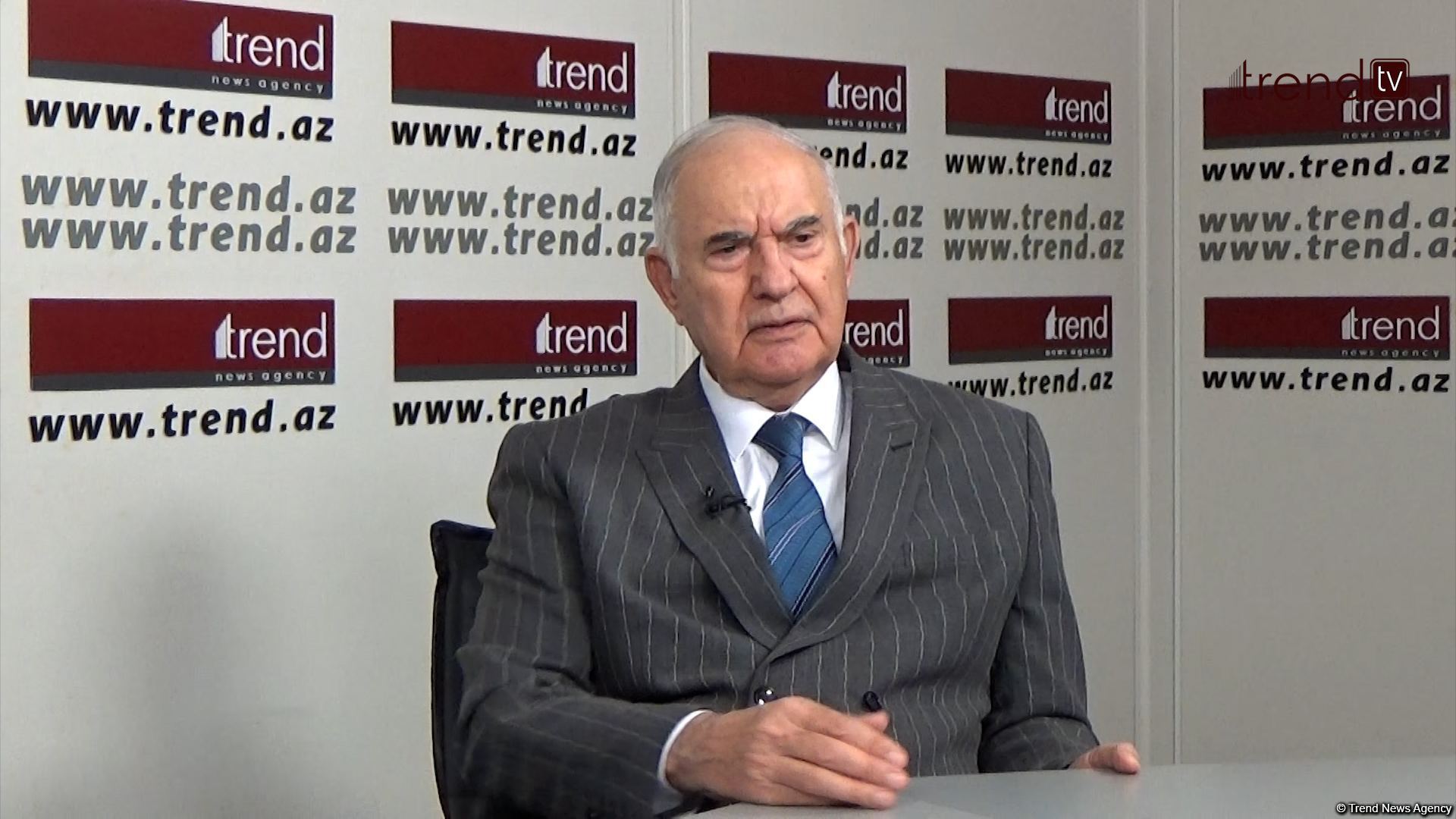BAKU, Azerbaijan, June 13. The return of national leader Heydar Aliyev to political leadership in Azerbaijan marked the beginning of a new chapter in the country’s modern history, political analyst Azer Garayev said in an interview with Trend.
“After regaining independence in 1991, the Republic of Azerbaijan entered a new era with high hopes and great aspirations. Yet, the early years of statehood were marked more by hardship than progress, as the country grappled with a series of deep crises. In the turbulent aftermath of the Soviet Union’s collapse, Azerbaijan faced a host of complex and dangerous challenges. Government institutions were fragile, the military was unorganized, and political leadership was plagued by instability.
The economy had ground to a halt, inflation was soaring, and the country was gripped by severe energy and food shortages. At the same time, Armenian military aggression led to the occupation of Azerbaijani territories. The Azerbaijan Popular Front (APF)-Musavat Party, which assumed power in 1992, proved incapable of addressing these challenges and instead steered the nation further into crisis. The frontlines in Karabakh were collapsing, while lawlessness and disorder spread across the capital, Baku. A wave of political upheaval—including attempted coups, violent confrontations between armed factions, and deep internal divisions—cast serious doubt over the country’s future. The unrest that unfolded in June 1993, particularly the attempted uprisings known as the Ganja events, the growing influence of rogue armed groups, the defiance of military units toward central authority, and the APF leadership’s inability to contain the chaos, pushed Azerbaijan to the brink of civil war," he said.
Garayev noted that at this critical juncture, the overwhelming majority of the Azerbaijani people turned to Heydar Aliyev—the seasoned and respected leader who was then serving as Chairman of the Supreme Assembly of the Nakhchivan Autonomous Republic.
“Since 1992, Heydar Aliyev had succeeded in establishing political stability in Nakhchivan and was widely regarded by the Azerbaijani public as the only credible national leader,” he said. “Faced with a rapidly deteriorating situation, the country’s leadership at the time—President Abulfaz Elchibey and Prime Minister Panah Huseyn—extended an invitation to Heydar Aliyev to come to Baku in early June. Responding to the public's call, Aliyev arrived in the capital on June 9 and swiftly began to restore order. During those days, Elchibey had effectively lost control of the government and left Baku on June 18, retreating to his native village of Keleki. On June 15, during a session of the Azerbaijani Parliament, Heydar Aliyev was elected speaker. His return to political leadership marked a turning point in Azerbaijan’s modern history and the beginning of a new era in its independence. That is why June 15 is commemorated as the Day of National Salvation," he added.
The analyst emphasized that June 15 should be recognized not merely as the day Heydar Aliyev was elected speaker of the parliament, but as the moment Azerbaijan’s statehood was restored, its fragmentation was averted, and the foundation for future development was laid.
“At a time when the state was collapsing from within, national unity and stability were reestablished through the determination of a leader who answered the people’s call and changed the country’s fate.
Following Heydar Aliyev’s return to power, the Ganja unrest was swiftly brought under control, separatist movements were suppressed, and command over the armed forces was reasserted. State institutions were systematically restructured, and agile reforms were introduced into the governance framework. In foreign policy, Azerbaijan adopted a balanced, interest-based course rooted in national priorities.
National Salvation Day represents not only the prevention of Azerbaijan’s physical disintegration, but also the halting of its moral and political collapse. “Heydar Aliyev did not merely offer a way out of the crisis; he laid the intellectual foundation for modern statehood. Under his leadership, pivotal transformations began—ranging from the formation of a national ideology and the construction of a legal state to the development of civil society and economic liberalization. For the first time, the Azerbaijani people were able to envision a stable and confident future.
The economic cornerstones of National Salvation were also laid during this period. With the signing of the 'Contract of the Century' in 1994, Azerbaijan began exporting its energy resources to global markets. This agreement was more than a contract for oil extraction—it marked Azerbaijan’s emergence as a geopolitical player on the world stage. The oil strategy launched by this agreement expanded the country’s role as a vital transit corridor, transforming it into a strategic bridge between East and West, North and South. As a result, Azerbaijan secured its financial and economic independence," he said.
Garayev added that following the events of 1993, the development of the national army became one of the core pillars of Azerbaijan’s long-term strategy.
"Heydar Aliyev successfully unified the country's fragmented military units under a single command and introduced a professional, rather than political, approach to military development. As a result, a ceasefire was secured on the frontline in May 1994, creating crucial breathing space for Azerbaijan to focus on nation-building. The adoption of the Constitution in 1995 and the subsequent parliamentary elections laid the groundwork for establishing a rule-of-law-based state. In 1996, the Milli Majlis officially designated June 15 as National Salvation Day, recognizing it as a turning point in the country's modern history. By the end of the 1990s, Azerbaijan had emerged as a key initiator of regional cooperation, a stable nation amidst regional turmoil, and a state gaining strength both politically and economically. In 2003, following his election, President Ilham Aliyev ushered in a new era of rapid development and increasing international recognition for Azerbaijan. Under President Ilham Aliyev’s leadership, Azerbaijan restored its territorial integrity with its victory in the Second Karabakh War, marking a historic milestone in the country's independence journey. This success was grounded in the stability, institutional resilience, and national unity fostered during the era of National Salvation. Today, National Salvation Day is more than a historic commemoration—it is a call to action. It reminds every citizen of their responsibility to uphold the sovereignty, growth, and enduring strength of independent Azerbaijan," he said.
Garayev added that National Salvation Day stands as a powerful symbol of the Azerbaijani people's political maturity, their unwavering trust in their leader, and their deep-rooted commitment to statehood.
"June 15 marks the true restoration of independence—the day Azerbaijan was pulled back from the brink of disintegration and collapse. As time passes, the historical and ideological significance of this date becomes even more evident. Today’s strong and sovereign Azerbaijan is the direct outcome of the decisive step taken on June 15, 1993," the political analyst concluded.
Stay up-to-date with more news on Trend News Agency's WhatsApp channel







